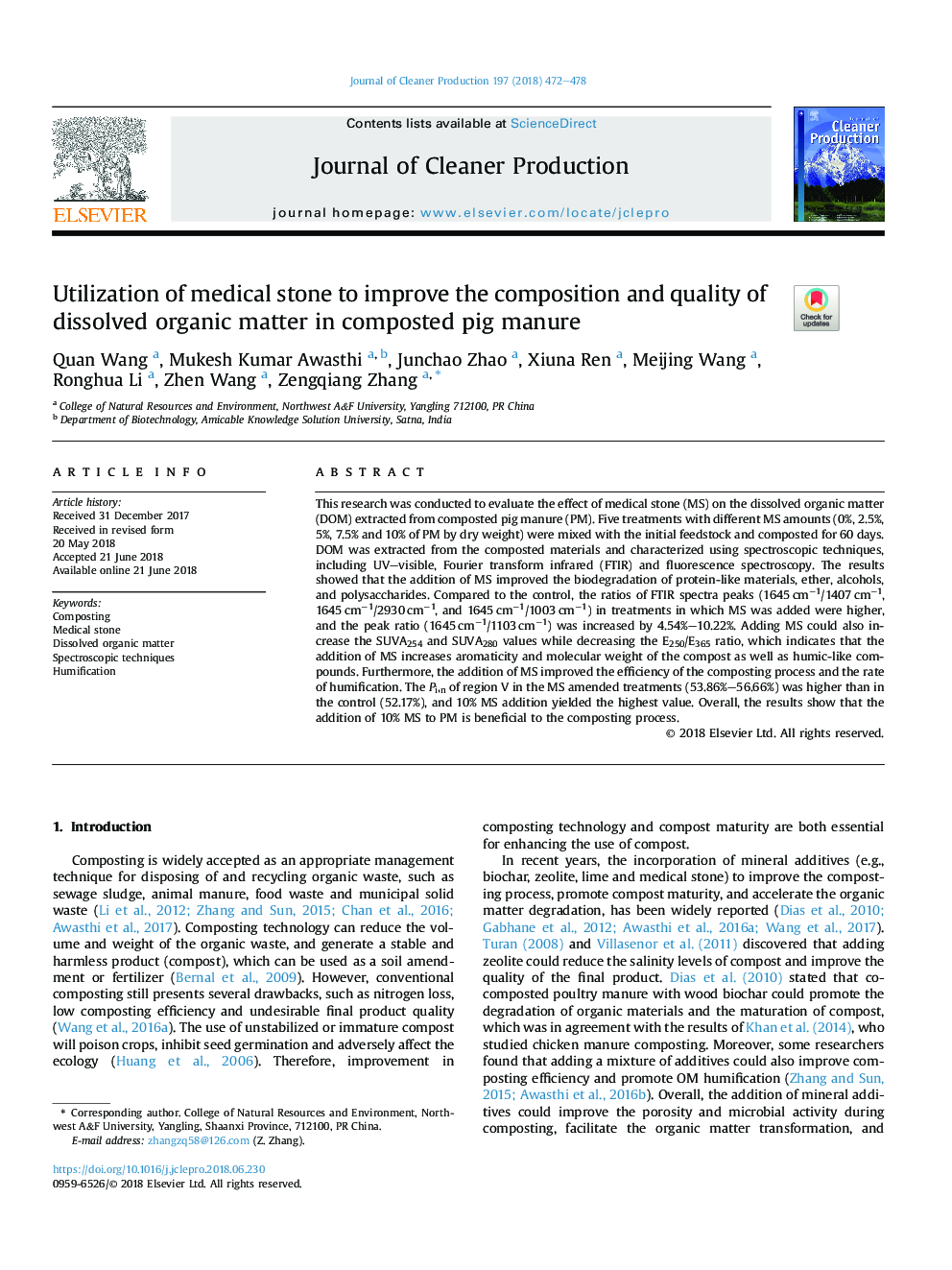| Article ID | Journal | Published Year | Pages | File Type |
|---|---|---|---|---|
| 8093915 | Journal of Cleaner Production | 2018 | 7 Pages |
Abstract
This research was conducted to evaluate the effect of medical stone (MS) on the dissolved organic matter (DOM) extracted from composted pig manure (PM). Five treatments with different MS amounts (0%, 2.5%, 5%, 7.5% and 10% of PM by dry weight) were mixed with the initial feedstock and composted for 60 days. DOM was extracted from the composted materials and characterized using spectroscopic techniques, including UV-visible, Fourier transform infrared (FTIR) and fluorescence spectroscopy. The results showed that the addition of MS improved the biodegradation of protein-like materials, ether, alcohols, and polysaccharides. Compared to the control, the ratios of FTIR spectra peaks (1645â¯cmâ1/1407â¯cmâ1, 1645â¯cmâ1/2930â¯cmâ1, and 1645â¯cmâ1/1003â¯cmâ1) in treatments in which MS was added were higher, and the peak ratio (1645â¯cmâ1/1103â¯cmâ1) was increased by 4.54%-10.22%. Adding MS could also increase the SUVA254 and SUVA280 values while decreasing the E250/E365 ratio, which indicates that the addition of MS increases aromaticity and molecular weight of the compost as well as humic-like compounds. Furthermore, the addition of MS improved the efficiency of the composting process and the rate of humification. The Pi,n of region V in the MS amended treatments (53.86%-56.66%) was higher than in the control (52.17%), and 10% MS addition yielded the highest value. Overall, the results show that the addition of 10% MS to PM is beneficial to the composting process.
Related Topics
Physical Sciences and Engineering
Energy
Renewable Energy, Sustainability and the Environment
Authors
Quan Wang, Mukesh Kumar Awasthi, Junchao Zhao, Xiuna Ren, Meijing Wang, Ronghua Li, Zhen Wang, Zengqiang Zhang,
